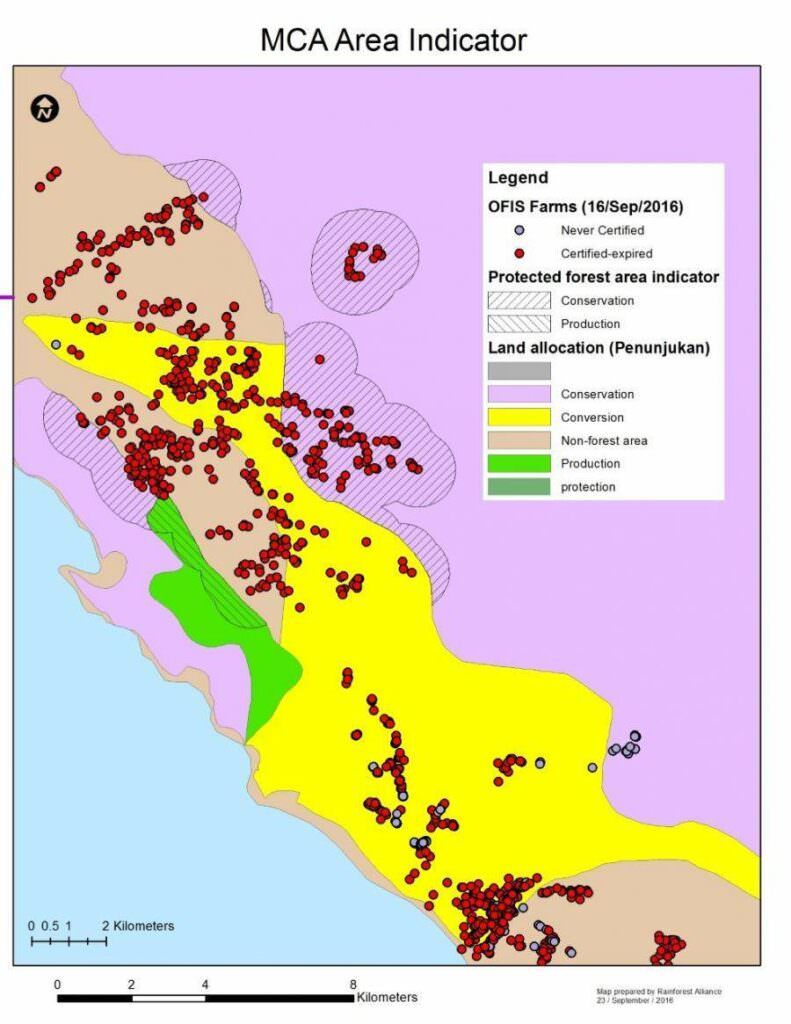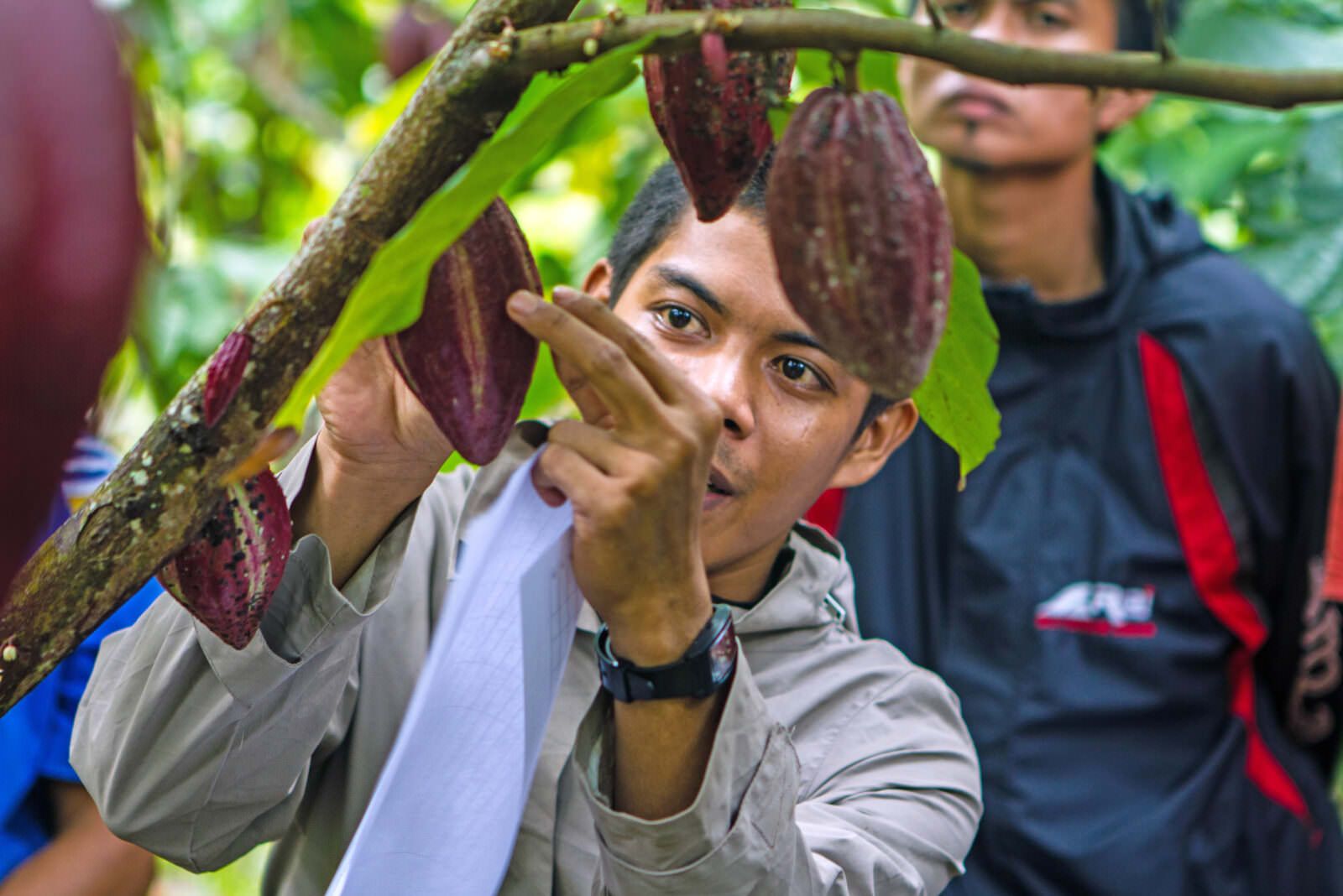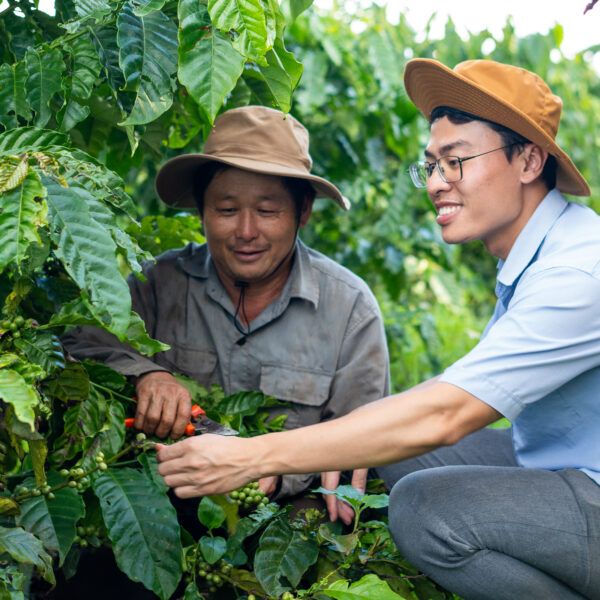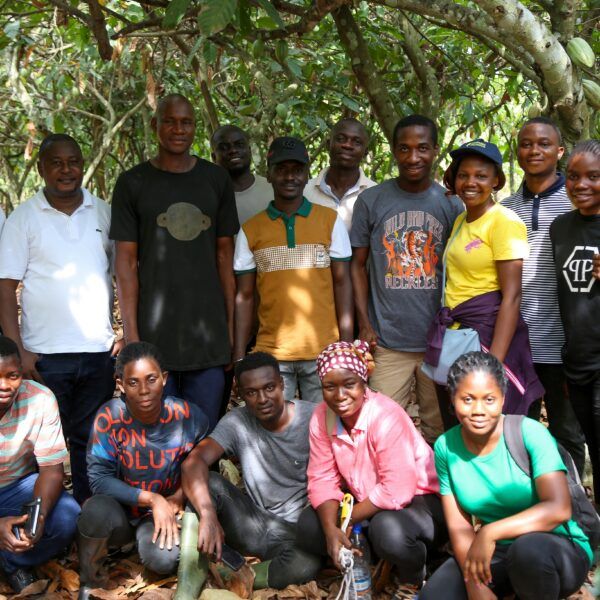The MCA-I Compact’s Green Prosperity project began on July 1, 2015. It strives to reduce poverty and bolster climate adaptation efforts amongst 8,000 cocoa smallholders in the North Kolaka and North Luwu districts in Southeast and Southern Sulawesi, respectively, through training and incentives that will apply on-farm techniques.

Location
Indonesia
Project Objectives
- Optimize sustainable cocoa yields.
- Improve cocoa quality.
- Provide access to national and global long-term marketing opportunities.
- Introduce state-of-the-art climate-smart agricultural practices that will contribute to climate change mitigation.
Partner communities
Indigenous farmers, local women, and wildlife.
Goals/Desired Impacts
As of October 2016, the project has enrolled 7,000 farmers (88% of the project’s total target), who are registered in the Olam Information System (OFIS); completed basic training in order to optimize sustainable yields and other income opportunities; introduced record keeping practices by distributing log books to 1,000 farmers; promoted farmer group development in a Training of Trainers (ToT) session; trained 10 new lead farmers on best agricultural practices that were then integrated with climate-smart agricultural Practices (CSA) and the Sustainable Agricultural Network (SAN) Standard; as well as conducted a baseline sampling monitoring survey that is currently being analyzed by the program team.
MCA-I partners have also implemented a social and gender integration plan that aims to increase women’s access to training programs. This effort has led to 1,510 women out of 6,055 farmers (approximately 25% in total) enrolling in the OFIS. In addition, 1,395 women out of 5,637 total farmers have actively participated in the training program.
Olam is committed to buying and selling Rainforest Alliance Certified cocoa and has provided an incentive structure to farmers, which has greatly enhanced the number of farmers willing to attend training sessions that serve to improve their skills and cocoa quality. Although the international market does not currently differentiate climate-smart cocoa at a wide scale, the Rainforest Alliance will introduce a wider choice of traceability systems in 2017, which are expected to have a positive impact on demand. These positive changes may be enhanced by the publication of the new SAN Standard this September, which significantly strengthens climate-smart criteria. As of October 2016, 27.2% of farmers in North Luwu and 30.2% of farmers in North Kolaka have adopted CSA practices.
To date, approximately 71% (3,493.5 hectares) of the total 4,911 farms participating in the project were involved in sustainable management practices. Furthermore, 96% of surrounding forests are also protected from environmental degradation. Additionally, the project team has estimated that the total avoided carbon emissions as a result of the project to date is 27,493 tCO2e, although these estimates will be verified in the coming months. The program team will also continue to study the social, economic, and environmental benefits of shade trees (including species such as durian, sesbania, and mahogany) by working with Olam to distribute these to farmers, and develop a monitoring plan that will track trees and cocoa seedlings that are distributed.
Partner Organizations
Olam International
Rainforest Alliance Contact
Anais Azoulay aazoulay@ra.org




